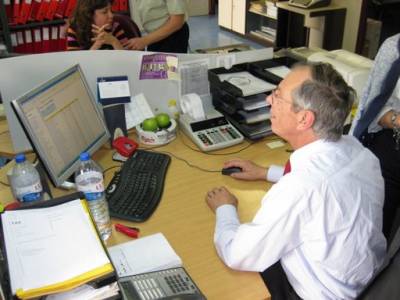Steady growth for ship supply in Turkey
Though the global COVID-19 (coronavirus) pandemic has caused a slowdown in maritime trade, outside the force majeure factor the ship supply sector in Turkey continues to grow steadily, according to George Saris, President of the Turkish Ship Suppliers Association (TURSSA).
The country’s largely free-market economy is driven by its industry and increasing service sectors and even though its traditional agriculture sector still accounts for about 25% of employment, the automotive, petrochemical and electronics industries have gained more importance and surpassed the traditional textiles and clothing sectors within Turkey’s export mix, he said.
Turkey remains highly dependent on imported oil and gas but it is pursuing energy relationships with a broader set of international partners and taking steps to increase use of domestic energy sources including renewables, nuclear and coal, added Mr Saris. The joint Turkish-Azerbaijani Trans-Anatolian Natural Gas Pipeline is moving forward to increase transport of Caspian gas to Turkey and Europe. “Upon completion it will help diversify Turkey’s sources of imported gas,” he said.
However, the growth of Turkish GDP since 2016 has revealed the persistent underlying imbalances in the Turkish economy, in particular Turkey’s large current account deficit means it must rely on external investment inflows in order to finance growth, leaving the economy vulnerable to shifts in investor confidence.
Mr Saris also said that as with 2019 not being a good year for the global economy, the forecast for 2020 is not much different and most likely even worse considering the impact of coronavirus on the first year’s quarter at least. “At the time of writing, it is still unclear on the exact impact of the coronavirus, both globally and nationally.”
Mr Saris said ship suppliers in Turkey were facing many challenges, beside coronavirus, including an increase of late payments between owners, agencies and suppliers. “Because of this, and in an increasingly competitive market, this puts extra strain on ship suppliers in Turkey.”
Founded in 2003, TURSSA itself is still healthy as an association with 33 members at present. Mr Saris said: “Its strength has been gradually improving further by adding new members from year to year.”
Any company that wishes to become a member of TURSSA must be operating in the ship supply sector for at least two years continuously and must meet certain standards. Furthermore, documents like application forms, tax registration certificates, criminal record certificates, two reference letters from TURSSA members, photos from the applicant’s warehouses, commercial activity certificates of Turkish Chamber of Shipping, are required to apply to become a member. Following this, the TURSSA Board visits applicants’ offices/warehouses before debating whether to refuse or accept membership applications.
This article first appeared in The Ship Supplier, the magazine of ISSA.
Photo by Meriç Dağlı on Unsplash




